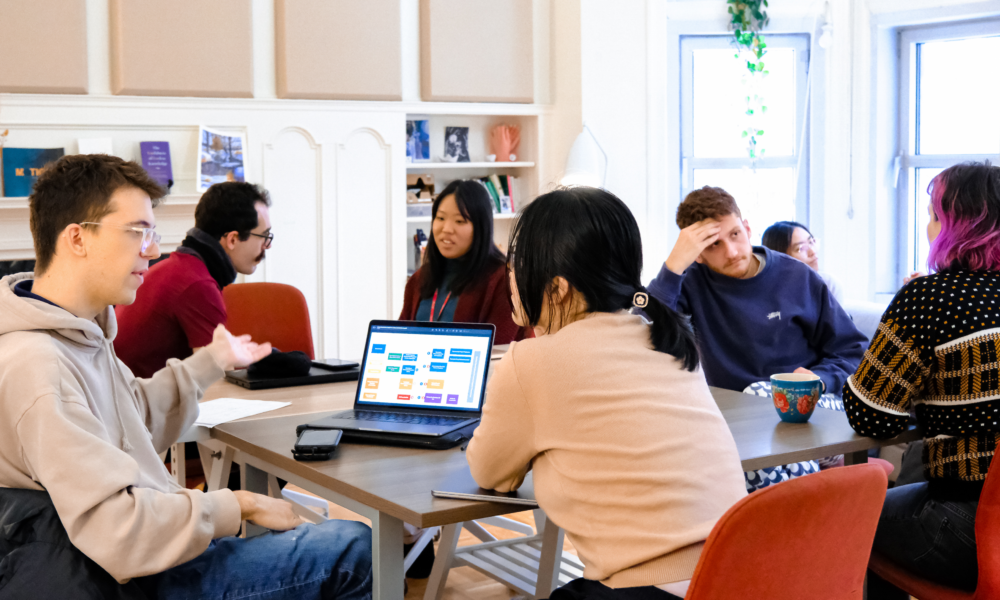Did you know that McGill offers a space where you can combine fields of study to explore, innovate, and learn beyond your program? This is Building 21 (B21). Located at 651 Sherbrooke Street West, this research facility welcomes McGill students at all levels—from undergraduate to PhD—to collaborate on groundbreaking interdisciplinary research. However, despite its inviting nature, many students at McGill have never heard of it. Why?
With McGill’s various extracurriculars, programs, and research initiatives, paired with its large student body, B21 flies under many students’ radars. Because B21 facilities provide an abundance of resources for research in uniquely interdisciplinary fields—offering an incredibly valuable dimension to a McGill degree—its programs and resources must be more streamlined into McGill’s curricula.
B21 offers students creative and academic freedom, setting it apart from other curriculum options at McGill. It provides a space for students to explore any area of study, without the constraints of required courses. While required courses are important in their own way, they offer little autonomy to the students enrolled. Research at B21 not only encourages but requires individual motivation, meaning that any student who walks through its doors does so with an enthusiasm unique to self-directed research. McGill scholars and alumni like Victoria Macheroub Kramer, researching neurodivergence with entrepreneurship, and Mathilde Papillon, who researched multimedia technology with dance, are prime examples of McGill students who merged their academic interests with their interest to develop fascinating projects and research.
Students are further motivated to take on research projects at the B21 building because their work is not graded nor does it count for course credit. In contrast to McGill’s relentless push for academic rigour, B21 emphasizes the journey and research discovery based on an individual’s personal motivation to learn. Thus, B21 fosters genuine creativity, determination, and higher quality of work, enhancing students’ learning through their creative liberties and disciplinary overlap. This should be the goal of all academic programs at McGill, and a dimension of an academic career promoted and made easily available as part of a given courseload.
B21 has its finger on the pulse of the most valuable aspects of a university education, but its opportunities are neither well-advertized nor incorporated easily into a regular course load. Investment in interdisciplinary research is not only beneficial for students individually but is also reflective of the real world outside of academia, where nothing exists in a vacuum. Especially because studying at McGill is already compartmentalized into faculties, the freedom to transcend these barriers and put the world-class McGill education to work at intersections of multiple fields is a necessary counterpart to a student’s education.
Such emphasis would increase participation, discussion, innovation, and support, and subsequently establish B21 as a crucial and prestigious facet of McGill’s academic resources. A growing community like this—of both professors and other students—would also push students to explore research areas that have not yet been explored. Such work sets one apart from other students, and can even lead to personalized research and internships, or standing as a successful launchpad for careers.
B21 supports students through meaningful creative journeys and gives them the chance to join a community where exploration, imagination, and creation are the status quo. Being surrounded by people whose unique identities shine through their work is individually inspiring, and constitutes the foundation of a high-quality education.
McGill’s degree might offer many advantages on its own, but it is clear that the B21 facilitates an unmatched opportunity for students eager to explore beyond their field of study. Without greater integration of B21 into McGill’s curriculum, students risk missing out on a transformative academic experience—one that encourages intellectual exploration and personal growth. The freedom to merge fields, free from the imposed constraints of a degree, empowers students to create and discover in ways that redefine the purpose of higher education. B21 fosters an environment where students can thrive, enjoy learning, and reach their full potential, paving the way for ambitious future pursuits.







